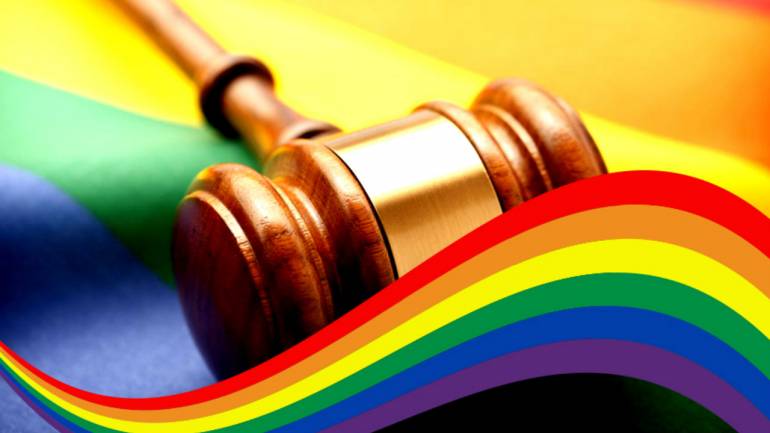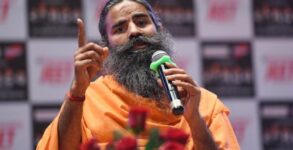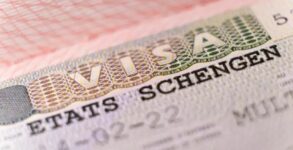The following is a timeline of the LGBTIQ community’s fight against the colonial era law criminalising homosexuality:
1991: AIDS Bhedbhav Virodhi Andolan (ABVA) is first to raise its voice against Section 377 of IPC. The NGO comes out with a report about ostracism faced by the LGBTIQ community.
1994: ABVA in 1994 moves Delhi High Court challenging the legality of Section 377 after Kiran Bedi, then heading Delhi’s Tihar Jail, refused to provide condoms to male inmates, saying it will encourage homosexuality. The petition is dismissed in 2001.
2001: Naz Foundation, an NGO working on sexual health and HIV/AIDS, files public interest litigation in Delhi High Court challenging Section 377 and calling for decriminalisation of homosexuality.
2004: Naz Foundation petition is dismissed. A review petition filed by it is also dismissed.
2006: Naz Foundation files special leave petition in Supreme Court which is then sent to the Delhi High Court. A host of gay rights organisations join the petition.
2009: Creating history, a Delhi High Court bench headed by then Chief Justice A.P. Shah strikes down Section 377, saying it violates fundamental right to life, liberty and equality. The bench legalised homosexual acts between consenting adults.
2009: The judgment is challenged in Supreme Court by astrologer Suresh Kumar Kaushal.
2013: In a big setback to the gay rights movement, a Supreme Court bench of Justice G.S. Singhvi and Justice S. Mukhopadhaya sets aside the high court ruling and recriminalises homosexuality.
2016: The matter is resurrected when a fresh petition is filed by members of LGBTIQ community: dancer N.S. Johar, journalist Sunil Mehra, chef Ritu Dalmia, hotelier Aman Nath and business executive Ayesha Kapur. This is marked to the Constitution Bench.
2018: Top hotelier Keshav Suri, who identifies himself as gay, joins the fight, moves the Supreme Court.
2018: A five-judge bench of Supreme Court headed by Chief Justice Dipak Misra begins hearing petitions against Section 377.
Asked to reply, the Modi government leaves the decision on Section 377’s constitutionality to the court’s wisdom.
July 2018: Supreme Court reserves verdict.
September 2018: In a unanimous verdict, a CJI Misra-headed bench decriminalises homosexuality.

















